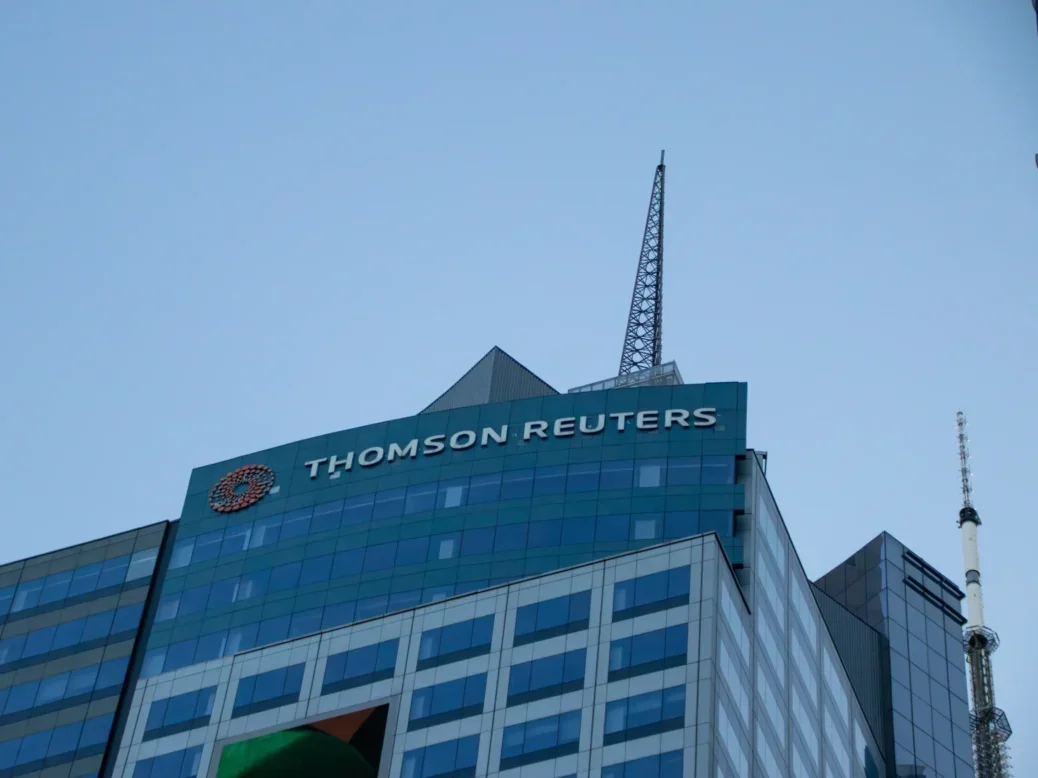
Thomson Reuters has won a major copyright victory as a judge ruled a competitor using its work to train an AI tool was not fair use.
The summary judgment relates to Thomson Reuters’ legal information provider Westlaw.
Ross Intelligence made its own legal research search engine for which it needed a database of legal questions and answers to train its (non-generative) AI search tool. It asked Thomson Reuters if it could license Westlaw’s content but the legacy provider refused because Ross was a competitor.
Ross instead bought around 25,000 Bulk Memos, compilations of legal questions, which were in turn built by lawyers using summaries (known as headnotes) from Westlaw. These had been copyrighted by Thomson Reuters.
The dispute came down to whether the Bulk Memos were copied from Westlaw or taken from uncopyrightable judicial opinions.
In a summary judgment published on Tuesday, US Circuit Judge Stephanos Bibas said: “A headnote is a short, key point of law chiseled out of a lengthy judicial opinion. The text of judicial opinions is not copyrightable. And even if it were, Thomson Reuters would not get that copyright because it did not write the opinions.
“But a headnote can introduce creativity by distilling, synthesising, or explaining part of an opinion, and thus be copyrightable.”
Judge Bibas compared the work that went into producing the headnotes to sculpture.
“A block of raw marble, like a judicial opinion, is not copyrightable. Yet a sculptor creates a sculpture by choosing what to cut away and what to leave in place. That sculpture is copyrightable.
“So too, even a headnote taken verbatim from an opinion is a carefully chosen fraction of the whole. Identifying which words matter and chiseling away the surrounding mass expresses the editor’s idea about what the important point of law from the opinion is. That editorial expression has enough ‘creative spark’ to be original.
“So all headnotes, even any that quote judicial opinions verbatim, have original value as individual works.”
Judge Bibas found that Ross infringed 2,243 summaries, saying “actual copying” in these cases was “so obvious that no reasonable jury could find otherwise”. These headnotes were “substantially similar” with language that “very closely tracks” the Bulk Memo question but not the language of the original case opinion.
Fair use: Use was commercial and not transformative
On fair use, the judge said Ross’s use was commercial and not transformative of the original work as it did not have a “further purpose or different character”.
He noted that Ross “meant to compete with Westlaw by developing a market substitute” and although there is a public interest in accessing the law, legal opinions are freely available and “the public has no right to Thomson Reuters’s parsing of the law…
“There is nothing that Thomson Reuters created that Ross could not have created for itself or hired LegalEase to create for it without infringing Thomson Reuters’s copyrights.”
He also said Ross’s defences on “innocent infringement, copyright misuse, merger, and scenes à faire” grounds all failed.
However a jury will still be asked to determine some issues at trial.
A Thomson Reuters spokesperson said: “We are pleased that the court granted summary judgment in our favour and concluded that Westlaw’s editorial content, created and maintained by our attorney editors, is protected by copyright and cannot be used without our consent.
“The copying of our content was not ‘fair use’.”
Email pged@pressgazette.co.uk to point out mistakes, provide story tips or send in a letter for publication on our "Letters Page" blog
